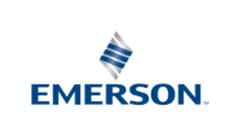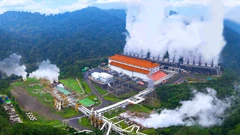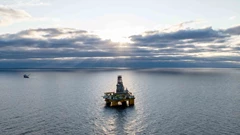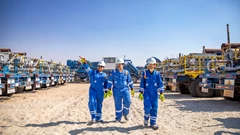ADNOC announces new Upstream Methane Intensity target of 0.15% by 2025 – the lowest in the Middle East
Abu Dhabi National Oil Company (ADNOC) announced on Monday it has set a new Upstream Methane Intensity target of 0.15% by 2025. The new target is the lowest in the Middle East, reinforcing ADNOC’s status as a leader in the responsible production of lower carbon energy. ADNOC’s 0.15% methane intensity target means ADNOC will be ranked in the Gold Standard category, by the Oil and Gas Methane Partnership 2.0 (OGMP 2.0) a multi-stakeholder initiative launched by the United Nations Environment Program (UNEP) and the Climate and Clean Air Coalition. It is the only comprehensive, measurement-based reporting framework for the global oil and gas industry that improves the accuracy and transparency of methane emissions reporting.
Abdulmunim Saif Al Kindy, Executive Director, People, Technology & Corporate Support Directorate at ADNOC, said: “Today’s announcement reinforces ADNOC’s status as an industry leader in efficiently reducing methane emissions, as part of our commitment to provide the energy for sustainable, economic development, while delivering tangible, positive results for our climate.
“At ADNOC our aim is to reduce the methane intensity from our operated oil and gas assets, at the same time as we meet the forecast growth in energy demand for decades to come. We will do this by making significant investments in new technologies to improve our environmental performance, strengthening our commitment to responsible production and demonstrating our support for the UAE’s Global Methane Pledge.”
The new target of 0.15% methane intensity reflects industry best practices that report total volume of upstream methane emissions from all operated upstream oil and gas assets and where emissions intensity is calculated as a percentage of the volume of total gas marketed for the same upstream sector. The announcement of the 0.15% methane intensity target coincided with the publication of the UNEP’s 2022 International Methane Emissions Observatory (IMEO) on the opening day of Abu Dhabi International Petroleum Exhibition Conference (ADIEPC), one of the world’s largest energy industry events, in Abu Dhabi.
Mark Radka, Chief, Energy and Climate Branch at UNEP, said: “Congratulations to ADNOC for its effort to reduce methane emissions. ADNOC has achieved OGMP 2.0 Gold Standard status for having submitted high quality data and a clear and robust plan to achieve its methane emissions target. Reducing emissions of this powerful greenhouse gas is an essential short-term action if we are to meet the climate goals of the Paris Agreement.”
As part of its sustainability strategy ADNOC plans to test and deploy the latest in emissions detection and quantification technologies by 2023, enabling ADNOC to move towards improved and continuous measurements at source-level. It will use the data to define baselines for further reductions and target reductions from major emitting sources, including flaring, combustions, and fugitive emissions. At the same time, ADNOC will continue to reduce methane emissions through the use of flare gas recovery systems and regular leak detection and repair programs. Hand-held infrared cameras are used to detect small leaks of fugitive emissions and to prioritize the company’s repair program. ADNOC is also exploring pilot technologies such as satellite monitoring and deployment of drone-mounted sensors to enhance the monitoring of methane emissions.
More than 80 companies with assets on five continents, representing a significant share of the world’s oil and gas production, have joined the OGMP 2.0 partnership. Its members also include operators of natural gas transmission and distribution pipelines, gas storage capacity and LNG terminals. ADNOC signed up to the OGMP 2.0 partnership in 2020.
Methane abatement is critical to the energy transition, given its higher warming potential compared to carbon dioxide. Methane emissions from the oil and gas sector come from a variety of operational activities across the value chain, making it important to identify, quantify and reduce these emissions and improve on limitations in the required technologies. According to the International Energy Agency reducing methane emissions from oil and gas production would slow the rate of global warming in a cost-effective and secure manner as efforts continue to decarbonise the energy system.
KEEPING THE ENERGY INDUSTRY CONNECTED
Subscribe to our newsletter and get the best of Energy Connects directly to your inbox each week.
By subscribing, you agree to the processing of your personal data by dmg events as described in the Privacy Policy.
More technology news

Emerson showcases advanced automation technologies at EGYPES 2025

Engine No. 1, Chevron and GE Vernova to power US data centres

Emerson to complete buyout of AspenTech for $7.2 billion

SLB and Star Energy Geothermal announce technology collaboration

ADNOC and AIQ successfully complete trial phase of agentic AI solution

Phoenix Air Unmanned achieves single-day pipeline patrol milestone

Endress+Hauser integrates SICK’s gas analysis and flow measurement technology

SLB awarded multi-region deepwater contracts by Shell

ADNOC Drilling, SLB and Patterson-UTI close Turnwell joint venture
















